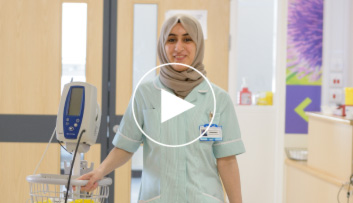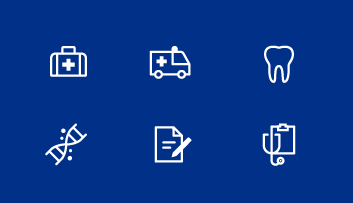Apprenticeships
Apprenticeships provide routes into a variety of careers in the NHS and are an excellent opportunity to earn, gain work experience and achieve nationally recognised qualifications at the same time.
What is available?
Apprenticeships are offered by individual NHS employers (such as trusts) as well as other non-NHS employers and organisations in many different areas of work. Below are some examples of apprenticeships that are relevant to the NHS.
- Business administration and human resources
- Clinical support
- Communications and marketing
- Construction/estates services
- Dental nursing
- Digital marketing
- Electrical and engineering
- Financial services
- Health and social care
- Healthcare science (various areas including medical physics, cardiac physiology and clinical engineering)
- IT
- Library, information and archive services
- Management
- Nursing
- Pharmacy support
There are four levels of apprenticeships available:
Intermediate level apprentices follow work-based learning towards level 2 - equivalent to 5 GCSEs at grades 9-4 (A*-C). These apprenticeships provide the skills you need for your chosen career and allow entry to an advanced level apprenticeship.
Advanced level apprentices follow work-based learning towards level 3 - equivalent to 2 A-levels. To start this level of apprenticeship, you should ideally have five GCSEs (grade 4 / C or above) or have completed an intermediate level apprenticeship.
Higher level apprentices follow work-based learning towards levels 4,5,6 and 7 - equivalent to a foundation degree and above. To start this level of apprenticeship, you should ideally have 2 A-levels (or equivalent) or have completed an advanced level apprenticeship.
Degree level apprentices follow work-based learning towards levels 6 and 7 - equivalent to a full bachelor's or master's degree.
What happens at the end of the apprenticeship?
You may be offered permanent employment at the end of the apprenticeship period. You can also search for job vacancies on the NHS Jobs website. Some apprenticeships also allow you to gain UCAS points and can lead onto a university course. You should always check with the organisation that provides your apprenticeship for details.
What if I don't feel ready for an apprenticeship?
If you are not quite ready for an apprenticeship, a traineeship might be for you. A traineeship is designed for young people who want to get a job and the skills and experience to boost their career prospects. It will provide up to 6 months of work experience, work preparation training, and English and maths support (if needed) to secure an apprenticeship or other employment.
Further information
For more information about apprenticeships and traineeships in England, visit gov.uk. To search for vacancies in your local area, visit the Find an apprenticeship website and the NHS Jobs website.
You can also visit our sister site, Health Careers, for more detailed information on apprenticeships and hear from people who have undertaken them.



